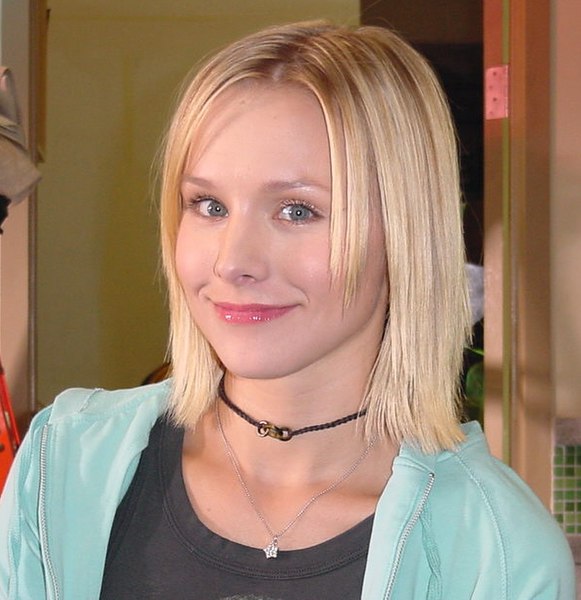All week I have been reading Ron
Howard’s twitter updates about doing the voice-over for the new Arrested Development episodes. Of course,
every time I read one of those tweets I got super excited because the narrator
was one of my favorite parts of Arrested
Development. However that got me thinking about V.O. s.
If you know anything at all about
screenwriting (or have seen the movie Adaptation)
you know that voice-over narration is one of the most controversial
screenwriting devices. Most screenwriting books and teachers will tell you to
avoid V.O.s at all costs and they are considered to be a sign of lazy
storytelling.
Nevertheless, as with everything
in life, there are many exceptions. I am not completely against the argument to
avoid voice-over narration as I can think of many examples of unnecessary,
redundant, annoying use of this device. But I can also think of cases where the
V.O. added to the story in a wonderful way! If you browse the net you will find
countless articles about movies that effectively used V.O. (American
Beauty, The Shawshank Redemption, Memento, etc.) However, here at TV
Republik, we care about television, so… A couple of superb shows came to mind
when I thought of good voice-overs. Here are my favorites:
Dexter
Dexter’s V.O. is one of my favorites on TV. Dexter is probably one of the most brilliantly
written characters of all times. I have always been in awe of how the writers
managed to make the character so likable given the fact that he is an
unapologetic serial killer. If the show was told from an outside perspective,
it would have been impossible to relate to Dexter. However, the writers created
a window into Dexter’s inner thoughts which allowed the audience to fully understand
the character’s motivations and desires. This window into Dexter was the result
of two devices: The Dad Figure (a manifestation of Dexter’s conscience) and
Dexter’s thinking process heard through his own V.O. The amazing thing about
being able to ‘hear’ Dexter’s thoughts is that they are almost never aligned to
what he actually says and does. This ever present contradiction between what he
thinks and the way he presents himself to the world makes this V.O. interesting,
funny at times and absolutely worth it.
Veronica Mars
Grey’s Anatomy
Surprisingly enough I don’t hate
the voice-over on this show, even though I don’t think it is ‘absolutely’
necessary. I think it works because it is used sparingly at the beginning and
end of the show (sometimes before act breaks) and it sums up the entire theme
of the episode. The V.O. is usually nicely written and sometimes it is more
profound than the actual episode. The voice-over is generally from Meredith’s
perspective, however once in a while they like to switch it up and use the V.O.
of random characters. I really don’t like it when they do that! I can buy into
Meredith’s philosophical ramblings (she is the title character after all), but the
magic is broken once we start hearing other people’s thoughts. So as long as
they keep it brief and in Meredith’s voice, I am OK with it.
Arrested Development
 |
| Ron Howard |
Pushing Daisies
 This amazing amazing show
probably had my favorite V.O. of all times! Pushing
Daisies was a fantasy almost fairy-tale-like show and the narrator, with
his bed-time-story-voice, made it feel even more magical. The narrator was
almighty, but unlike the others, this one had and embraced the role of
‘exposition fairy’ which is precisely what should be avoided in voice-overs. At
times, our almighty narrator was in charge of telling us how the characters
were feeling, sometimes it was completely unnecessary, but he did it in the most
poetic and sweetest way. Other times, his exposition was SO on the nose it
became funny. It went to the extreme where the narrator would say one thing and
then the characters would repeat the exact same line. It was superb in a way
that took everything you should not do with V.O. and turned it into brilliance.
This amazing amazing show
probably had my favorite V.O. of all times! Pushing
Daisies was a fantasy almost fairy-tale-like show and the narrator, with
his bed-time-story-voice, made it feel even more magical. The narrator was
almighty, but unlike the others, this one had and embraced the role of
‘exposition fairy’ which is precisely what should be avoided in voice-overs. At
times, our almighty narrator was in charge of telling us how the characters
were feeling, sometimes it was completely unnecessary, but he did it in the most
poetic and sweetest way. Other times, his exposition was SO on the nose it
became funny. It went to the extreme where the narrator would say one thing and
then the characters would repeat the exact same line. It was superb in a way
that took everything you should not do with V.O. and turned it into brilliance.In summary, V.O. can sometimes be a sign of lazy storytelling, but it can also be a brilliant when used properly and these are only a few examples.




Thanks for sharing this post.
ReplyDeleteA voice over actor needs to be trained continually if he or she wants to maintain a robust career in voice over acting. The "urdu voice over®
ReplyDeletePinpointing the right voice over talent is very important regardless of the project that you want them for. But the challenge that is faced by most people is how they can go about the process so as to successfully hire the right artist.Urdu Voice Over
ReplyDeleteThe voice actor uses their natural gifts, predominantly their voice and mastery of it, to infuse life into the written word. Urdu Voice Over
ReplyDelete3861B02C73
ReplyDeletemobil ödeme takipçi
bella modern swivel accent chair